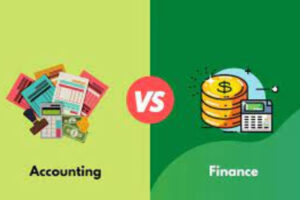Personal finance is a critical aspect of our lives that affects our financial well-being and overall quality of life. It encompasses various financial decisions and strategies aimed at managing money, saving for the future, and achieving financial goals. In this article, we will explore the most important things to know about personal finance, providing insights and practical advice to help you make informed financial choices.
I. Introduction
Personal finance refers to the management of an individual’s financial resources to achieve financial stability and security. It involves making decisions about budgeting, saving, investing, debt management, insurance coverage, tax planning, and retirement planning, among other aspects. By understanding and implementing key principles of personal finance, individuals can improve their financial health and work towards achieving their financial goals.
II. Setting Financial Goals
Setting financial goals is an essential first step in personal finance. It involves identifying both short-term and long-term objectives that align with your aspirations and lifestyle. Short-term goals may include saving for a vacation or purchasing a new gadget, while long-term goals could involve saving for a down payment on a house or planning for retirement.
To effectively set and achieve financial goals, it is crucial to create a budget. A budget helps you track your income, expenses, and savings, enabling you to allocate your money wisely. By prioritizing your goals and managing your spending, you can make progress towards achieving them.
III. Managing Debt
Debt management is another critical aspect of personal finance. Understanding different types of debt, such as credit card debt, student loans, or mortgages, is crucial for making informed decisions about borrowing money. It is essential to evaluate the interest rates, repayment terms, and potential impact on your overall financial situation before taking on any debt.
Developing strategies for debt repayment is vital to avoid excessive debt and improve your financial standing. Techniques such as the snowball method or the avalanche method can be employed to pay off debts systematically. Additionally, it is important to avoid unnecessary debt by distinguishing between essential and non-essential purchases.
IV. Building an Emergency Fund
Building an emergency fund is an important part of personal finance. An emergency fund provides a financial safety net to cover unexpected expenses, such as medical emergencies, car repairs, or job loss. It helps prevent reliance on credit cards or loans during challenging times.
Determining the size of an emergency fund depends on individual circumstances, but a general rule of thumb is to save three to six months’ worth of living expenses. This fund should be easily accessible in a liquid form, such as a high-yield savings account.
V. Understanding Credit
Credit plays a significant role in personal finance, impacting your ability to borrow money, secure favorable interest rates, and even rent an apartment. It is crucial to establish and maintain good credit. Monitoring your credit score regularly and understanding the factors that influence it can help you identify areas for improvement.
Responsible credit card usage is important for building and maintaining good credit. Paying bills on time, keeping credit card balances low, and avoiding excessive credit inquiries are some of the practices that contribute to a positive credit history.
VI. Investing for the Future
Investing is a powerful tool for building wealth and securing your financial future. It involves putting your money into different investment options, such as stocks, bonds, mutual funds, or real estate, with the expectation of earning a return over time.
The importance of investing lies in the potential for your money to grow through compounding and capital appreciation. Diversification, spreading your investments across different asset classes and sectors, helps manage risk. It is advisable to understand your risk tolerance and investment goals before making investment decisions.
VII. Retirement Planning
Planning for retirement is crucial to ensure financial security during your golden years. Starting early and consistently contributing to retirement accounts, such as 401(k)s or IRAs, can have a significant impact on the size of your retirement nest egg.
Understanding retirement accounts, their tax advantages, and withdrawal rules is essential for effective retirement planning. Calculating your retirement needs based on your desired lifestyle and estimated expenses will help you determine how much you need to save to maintain your standard of living.
VIII. Insurance Coverage
Insurance coverage provides protection against unforeseen events and mitigates financial risks. It is important to assess your insurance needs based on factors such as your age, health, dependents, and assets.
Types of insurance to consider include health insurance, life insurance, disability insurance, and property insurance. Evaluating different insurance policies, comparing coverage and premiums, and seeking professional advice if needed can help you make informed decisions about insurance coverage.
IX. Tax Planning
Tax planning is an integral part of personal finance. Understanding tax laws and regulations enables you to optimize your tax situation and potentially reduce your tax liability.
Maximizing tax deductions and credits can help lower your taxable income and save money. Consulting with a tax professional or utilizing tax software can provide guidance and ensure compliance with applicable tax laws.
X. Continual Learning and Financial Education
Staying informed and continually educating yourself about personal finance is essential for making informed financial decisions. Numerous resources are available, including books, articles, podcasts, and online courses, to help you expand your knowledge.
Seeking professional guidance from financial advisors can provide personalized advice based on your specific circumstances. They can assist with comprehensive financial planning, investment strategies, and help you navigate complex financial situations.
XI. Conclusion
Personal finance is a vital aspect of our lives that requires attention and proactive management. By understanding and implementing the key principles discussed in this article, you can take control of your finances, work towards your financial goals, and improve your overall financial well-being.








